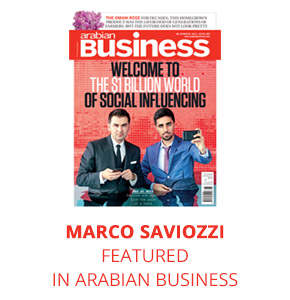How important is speaking another language?
If you’re a broker in the UAE, or looking to relocate here, having a language or two up your sleeve might just give you that all-important advantage.
It’s true that it’s easy to be complacent if English is your first (and only) language – it’s spoken in more countries than any other and even when assessed by population, it ranks third in the world behind Mandarin and Spanish. And even with 200 nationalities living and working in the UAE, the chances are that, as a financial broker, a large slice of your business will involve English-speaking clients – regardless of where they are from.
So does that mean English is enough?
Thinking about the needs of your clients
Nelson Mandela famously said ‘If you talk to a man in a language he understands, that goes to his head. If you talk to him in his language, that goes to his heart’.
Being able to converse with a client in their own language not only puts them at ease, it also gives you an insight into their cultural background. The problem with literal translation is that it doesn’t always reflect sentiment or context. Learning to speak your client’s language will also make you aware of the gestures and kinesics that go hand-in-hand with the spoken word.
Being able to converse with a client in their own language not only puts them at ease, it also gives you an insight into their cultural background.
What does this mean for buying and selling? Well, one study by Common Sense Advisory of 2,400 consumers across three continents found that most people prefer buying in their own language. More than half bought only from websites in their native language and for France and Japan, the figure was over 60%. More than 85% said having information in their own language before buying would be a critical factor – particularly for financial products.
Making clients feel at home and understood is important, but it seems it won’t hurt your profits either.
To underline the importance of not taking English for granted, look at former Co-Chief Executive Officer of Deutsche Bank AG, Anshu Jain. In 2015 he faced thousands of German investors and said, in German, ‘On this day, every word matters’. He then explained that he would deliver the rest of his address in English. Less than three weeks later, he resigned having lost the confidence of investors. Now, his language faux pas wasn’t the only reason for his resignation, but it didn’t help his relationship with investors.
He was right about one thing though – every word mattered.
Languages: They are good for your career as a broker
Beyond good relations with clients, there’s evidence to suggest that adding another language to your arsenal will help you financially. This year, recruiters Robert Half found that in the UAE ‘bilingual professionals who are also Western-educated continue to command the highest salaries within the region, particularly from multinational corporations.’
To take just one example, National Bank of Dubai employs 7,600 people, one-third of whom are Emirati, with more than 80 other nationalities. According to their Group Head of Talent Acquisition, ‘Language skills are…among our most important recruitment criteria.’
But which language should you learn? Unless you’re lucky enough to have a special aptitude for it, you won’t be able to cover off all the key languages of business in the UAE today. You might be able to pick up a smattering of a few, and the languages that stand out will depend on your company’s specific focus. However, in the UAE there’s little doubt that English and Standard Arabic are the two headline acts. Both are being heavily backed in current UAE educational policy, with Arabic forming a key part of the UAE’s Vision 2021.

There’s evidence from the workplace that while both English and Arabic are in demand, the latter is more desirable and what’s really in demand is proficiency in both. A 2017 report from recruiters Bayt found that among the skills sought by UAE employers, ‘Good communications skills’ in both Arabic and English were cited by 68%, while the result for ‘English only’ was far lower. Interestingly, when applied just to banking and finance, the first figure rises to 69% while the second falls to 15%.
At this point it’s worth noting that while widely spoken in Abu Dhabi and Dubai, overall, UAE English coverage is actually quite sporadic, with Education First labeling the country as having ‘low proficiency’. But things are changing – the UAE government’s education strategy aims to have maths and the sciences taught to all students in English by 2020. For that reason, it’s also devoting a large part of its teacher training to improving English language skills in the profession. In short, candidates skilled in both of the big UAE languages have a significant advantage over those who bring only English to the table.
Advantages in the workplace
What advantages are there beyond the potential for salary increases and a better working relationship with clients? If you’re working with a team composed of several nationalities then the advantages will be similar to those you would experience with your clients. Being able to converse in, and crucially, understand the context of other languages will help you and your team to function in day-to-day activities. While that’s good for getting things done and being able to chat with your peers about subjects that interest them, it’s also helpful when finding common ground, resolving conflicts and diffusing potential misunderstandings.
It’s also worth looking at the psychological advantages. There’s evidence to suggest that being skilled in two or more languages may actually help you to perform decision-making tasks more effectively. That may seem counterintuitive – as a bilingual person, the languages you speak will compete for attention, which might suggest they would inhibit your ability to get things done. However, according to one study from York University: ‘Lifelong experience in managing attention to two languages reorganises specific brain networks, creating a more effective basis for executive control and sustaining better cognitive performance throughout the lifespan’.
There’s evidence to suggest that being skilled in two or more languages may actually help you to perform decision-making tasks more effectively.
In other words, dealing with competing languages may actually sharpen your ability to prioritise your workload and make decisions. A good example is the ‘Stroop’ test in which participants recite a list of colours, but rather than reading the actual words, they have to say the ink colour of each one. It’s harder than it sounds and several studies have found that bilingual participants perform the test most efficiently.
Thinking about the future
Learning a second language could have beneficial effects in terms of your career, your finances and how well you get along with your clients and colleagues. It could help you to put clients at ease, understand their motivations and give them an extra layer of confidence in you, while the everyday business of getting along with colleagues will be enhanced by your new, wider appreciation of culture and context.
In a way, the debate about learning another language is only part of the picture – it’s not so much about being multilingual, as being multinational. What’s important is to have a window on your clients, their psyche and their understanding of the world.
However, there’s one last thing to think about. As we’ve seen, both English and Arabic proficiency in schools are government priorities at the moment, and with that in mind it’s a good idea to think about whether being bilingual could benefit your career longevity. Even if you’re at the top of your game now, in years to come, the brokers of tomorrow could be very well educated in both languages, making them more desirable and employable.
As a broker, you know the importance of staying ahead of the game, so it’s worth thinking about how you’ll compete with the next generation of multilingual candidates.
About the author: Marco Saviozzi, CEO
Marco attained an MBA in Finance from the IEMI, Genève, before starting his career in corporate sales at Xerox. He would eventually move on to French firm Viel (now Tradition), before being headhunted by prestigious London firm ICAP, where he was brought in as head of the French Franc IRS Desk. He quickly rose to become a part of the management committee as Co-Head of the Euro Desk, and later moved to the New York office to head up the Equity Derivatives team. After 14 years at ICAP, in 2007, he opened Newedge – a Calyon / Societe Generale brokerage arm in Dubai. Two years later he would go on to form GMG as a co-founder with several past colleagues. When he is not facilitating trades on behalf of clients, Marco can be found on the golf course or watching his favourites sports – Formula 1 and horse racing.


